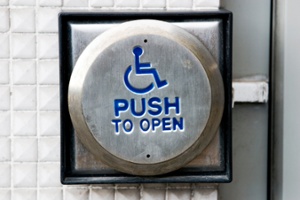
What do you do if you've received an unfavorable Social Security decision? We have talked in prior disability law blog posts about the high likelihood that an initial claim filed with the Social Security Administration (SSA) will be denied. This is a very common occurrence and one that clients frequently come to us to help them resolve.
Unfavorable Social Security Decision? Act Quickly
If your claim has been denied, the most important thing to do is to act fast. There are ways to appeal the decision that has been made. If you are unsatisfied and believe it is incorrect, don’t settle. We recommend that you retain an experienced social security attorney who can advocate on your behalf and help you to avoid some of the mistakes that may have been made in the initial application.
It is important to remember that there are tight deadlines that apply, and if you don’t meet them, you may lose your ability to challenge the unfavorable Social Security decision, even if it was wrong! After your denial, you have 60 days to appeal. Colorado is one of a minority of states that allow an applicant who has been denied benefits to immediately request a disability hearing. This is a positive for you, as the majority of states require that you first request reconsideration by a different claims examiner. In Colorado, you get to skip that step, streamlining the appeals process.
Sixty days may seem like a lot, but time goes by very quickly and it can be easy to forget the deadline as you get caught up in managing day-to-day living.
Missed the Deadline? Act Quicker
If you’ve already missed the deadline for appealing your unfavorable Social Security Disability decision, there may be a way to fix it. Under certain circumstances, you can ask the SSA to forgive your late filing of an appeal. For this to happen, you will need to show that you had a “good cause” for missing the deadline.
“Good cause” is a broad term that encompasses a variety of reasons. It is not a black and white determination. Rather, the decision-maker will weigh all of the facts to determine if your cause for missing the deadline was in fact valid and excusable (i.e. “good”). Some examples include serious illness or being given incorrect or misleading information by an SSA employee that caused the delay. At a minimum, you should write a letter explaining in detail the “good cause” that resulted in you missing the deadline. In deciding whether or not good cause existed, any doubt will be resolved in your favor.
If your request for an appeal is denied because you missed the deadline, you will need to start the entire process again. This means more time without disability benefits.
Additional Questions
If you have questions about initial social security disability claims or appeals, contact the experienced attorneys at the Rocky Mountain Disability Law Group today to learn more about how we can help ensure you receive the benefits you are entitled to. Please call (303) 534-1958 or complete a contact form on our website.


